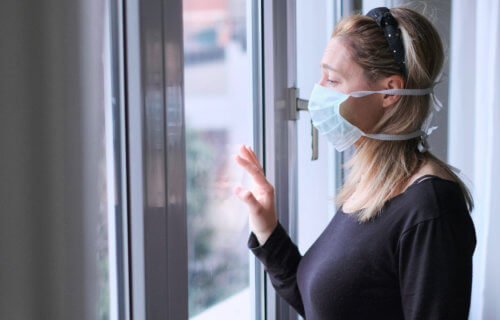Author: “Among older adults, social isolation is the largest known risk factor for mortality, equal only to smoking.”
VANCOUVER, British Columbia — It’s no secret that the coronavirus pandemic has forced millions of people to be more isolated than they normally are. Studies have revealed the negative impact this can have on a person’s mental and physical health, especially in older adults. Researchers at the University of British Columbia now say isolation can be a much bigger problem depending on your gender. Their study finds women are at higher risk for hypertension due to social isolation than men.
Researchers say middle aged and older women who have few social ties have an increased chance of developing hypertension, which can lead to stroke or heart disease — the leading cause of death among females. At-risk women include those without a partner, widows, and those engaging in less than three social activities a month.
“Among older adults, social isolation is the largest known risk factor for mortality, equal only to smoking,” says principal investigator Annalijn Conklin in a university release. “Less well known is how social isolation affects men and women differently, or how it affects biomarkers of longevity. Our research indicates that women, in particular, are more likely to be hypertensive when they experience isolation in middle and older age.”
Surprising differences between men and women
The report examined data from the Canadian Longitudinal Study on Aging, which looked at the social connections of over 28,000 adults between 45 and 85 years-old. Along with unattached and isolated women, females with a social network of less than 85 contacts also had higher odds of high blood pressure.
The average systolic blood pressure (BP’s first number) was found to be highest among widows and women living alone. The greatest difference in these readings appeared between married women and widows. Women who have lost their spouses had the highest risk for hypertension overall.
When looking at men, the results reveal stark differences in how the genders handle isolation. Researchers say men who are single, share a home with someone, or have large social networks actually are at higher risk for high blood pressure. Men who live alone with small friend circles had a lower blood pressure.
Other impacts of social isolation
Study authors say staying active seems to have a protective effect for women, leading the team to suggest health care providers add questions about social engagement into their screenings for health issues.
“Among women, the increase in blood pressure that was associated with the lack of social ties was similar to that seen with non-steroidal anti-inflammatory use, increased sodium diets pollution or weight gain,” Conklin explains. “This represents a significant women-specific risk factor for heart disease or stroke.”
The Canadian team’s previous work also revealed a link between social isolation and obesity.
“Taken with our previous research, our new findings underline how social isolation affects health in men and women differently,” the assistant professor in the faculty of pharmaceutical sciences at UBC adds. “At a time when COVID-19 is forcing us to limit our social interactions, it’s important for those working in health care and public health to encourage older women, in particular, to find new ways to be socially active.”
The study appears in the Journal of Hypertension.
